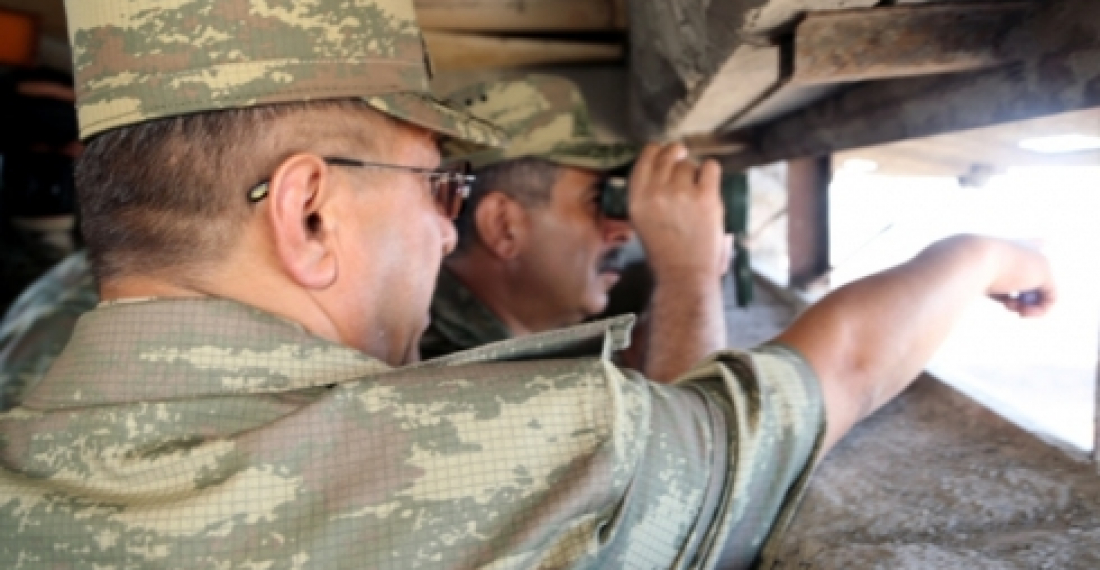Министр обороны Азербайджана, генерал-полковник Закир Гасанов, в четверг (6 августа) осмотрел войска на линии фронта в зоне нагорно-карабахского конфликта и проверил боеготовность воинских частей и формирований.
И Армения, и Азербайджан продолжают сообщать о ежедневных нарушениях режима прекращения огня на линии соприкосновения, но на этой неделе уже без жертв. Тысячи азербайджанских и армянских солдат сосредоточены в траншеях и других укреплениях вдоль линии соприкосновения, которая была определена во время вступления в силу режима прекращения огня в 1994 году, также солдаты сосредоточены вдоль международной границы вне зоны самого конфликта. Стороны постоянно сообщают о попытках вторжения, но в целом ни одна из сторон не смогла захватить какую-либо новую территорию.
источник: commonspace.eu
фото: Министр обороны Азербайджана генерал-полковник Гасанов на линии соприкосновения, разделяющей армянские и азербайджанские силы в зоне нагорно-карабахского конфликта, 6 августа 2015 (фото любезно предоставлено пресс-службой Минобороны Азербайджана).







